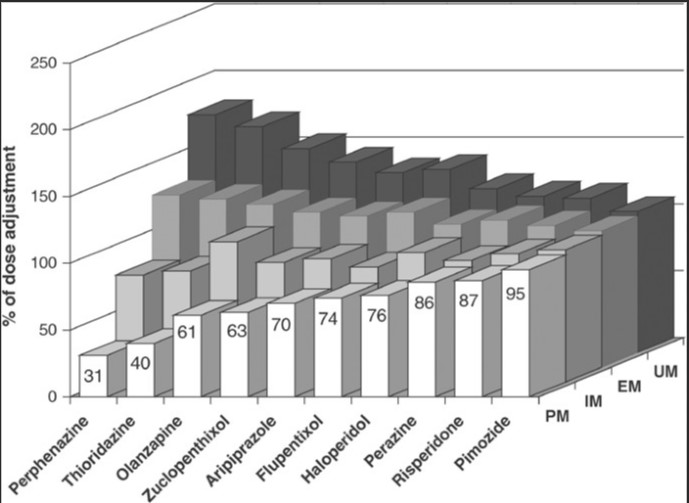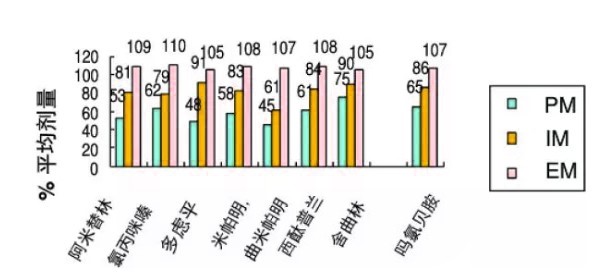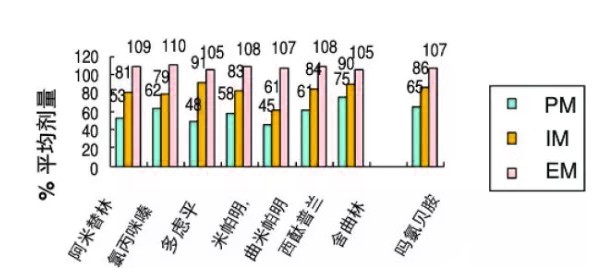|
|
Gene detection, "suppression" first!Issuing time:2020-10-24 10:50 Recently, the National Health Commission issued the "Working Plan for Exploring Special Services for the Prevention and Treatment of Depression". The plan requires that by 2022, the public's awareness rate of depression prevention and treatment knowledge will reach 80%, the rate of depression visits will increase by 50%, and the treatment rate will increase by 30%. Psychiatric hospital physicians have increased the recognition rate of depression by 50%.  Depression has been a hot topic in the health field in recent years. According to the findings of the article "Prevalence of mental disorders in China: a cross- sectional epidemiological study" published in The Lancet-Psychiatry in 2019, The lifetime prevalence of depression is 6.9%. According to this figure, as of that time, there are more than 95 million depression patients in China. According to estimates by the World Health Organization, there are about 350 million depression patients in the world. As a common disease, depression has become the second largest "killer" of humans after cancer.  The cause of depression is mostly believed to be related to the lack of neurotransmitters dopamine (DA), norepinephrine (NE) and serotonin (5-HT). The classification and representative of drugs currently used in clinical treatment of depression The main drugs are: ◆ Selective 5-HT reuptake inhibitor (SSRI): fluoxetine, paroxetine, sertraline, citalopram, fluvoxamine ◆ 5-HT and NE reuptake inhibitors (SNRI): venlafaxine, duloxetine ◆ NE and DA reuptake inhibitor (NDRI): Bupropion ◆ 5-HT2A receptor antagonist and 5-HT reuptake inhibitor (SARI): trazodone, nefazodone ◆ Selective norepinephrine reuptake inhibitor (NRI): Reboxetine ◆ NE and specific 5-HT antidepressant (NaSSA): mirtazapine ◆ Monoamine oxidase inhibitor (MAOI): moclobemide ◆ Tricyclics (TCAs): imipramine, amitriptyline, doxepin, maprotiline, mianserin Although drugs are currently the most effective way to treat depression, there is still a problem of significant differences in the efficacy of antidepressant drugs among different individuals. With the deepening of research on depression drugs, pharmacogenomics research can provide an important basis for individualized drug selection for depression and the prevention of adverse reactions. In the drug inserts approved by the U.S. Food and Drug Administration (FDA), hundreds of drugs have been recommended for genetic testing, one of which is the treatment of mental illness. Common metabolic enzymes of psychotropic drugs include CYP2D6, CYP2C19, CYP1A2, etc. The enzyme activities caused by genetic polymorphisms are different, and they can be divided into ultra-fast metabolizer (UM), normal metabolizer (EM), slow metabolizer (PM), and Intermediate Metabolism (IM).
Taking the CYP2D6 gene as an example, adjust the dosage of antidepressants according to the CYP2D6 genotype as shown in the figure below. Take imipramine as an example, if the patient is a slow metabolizer, his medication dose can only be about 30% of the recommended dose to ensure that too much medication cannot accumulate in the body and cause adverse reactions. Correspondingly, if the patient is of ultra-rapid metabolism, the dose needs to be increased to about 182% of the recommended dose to ensure that it reaches an effective blood concentration. Similarly, the dose of TCAs and SSRI drugs can also be adjusted according to the CYP2C19 genotype. Therefore, drug gene testing has a broad application space in the field of depression treatment. If the drug genotype of patients with depression can be tested, then the use of antidepressant drugs can not only improve the efficacy but also avoid adverse reactions.
Lancet Psychiatry. 2019, 6(3):211-224. Acta Psychiatr Scand. 2001, 104(3):173-92. |




